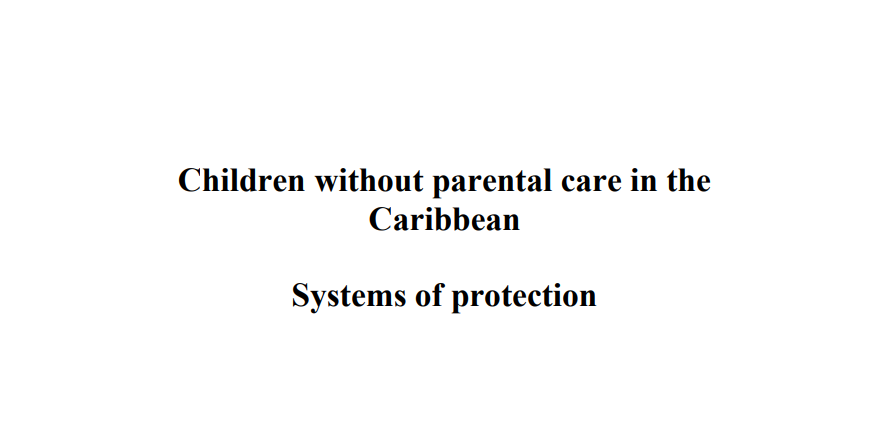
Children without parental care in the Caribbean Systems of protection

This report is published in 2007
Abstract.
Long term residential institutional is detrimental to children‟s well being, this is a proven fact. Studies conducted globally have confirmed the damages that children placed in residential institutional care sustain. Although the actual numbers of children who reside in institutions fluctuates regularly, the figures gathered at any one time are still alarming, for example there are an estimated one million children in institutional care across Europe1 . With the impact of AIDS, conflict and growing poverty and disparities in (especially) developing countries institutional care continues to be one of the only options available for many children around the world2 . Prevention of family separation, kinship, family and community care are the proven and recommended solutions to the institutional alternative worldwide. However, to ensure that all children are cared for in a family setting requires the set up of specific programmes and services. Existing examples include supporting parents to prevent separation of the child, such as providing material, financial, technical and psychosocial assistance and setting up formal foster care systems. These programmes and services however depend on the support of social welfare practitioners within Government and civil society organisations who in turn need the commitment of policymakers, external international agencies and other influential actors for authorisation, coordination, enforcement of standards of care and sustainability of resources. The responsibility for children without parental care therefore rests on a number of different bodies at many different levels. The situation is no different in the Caribbean and this study found similar commonalities across the region regarding the care of children within institutions and the (non) availability of adequate alternative solutions. The biggest problem continues to rest on the limited and small scale family and community based solutions that in addition are not adequately endorsed, supported or resourced Prevention of separation as a key solution to stopping children entering institutional care is virtually non-existent and long term support to providing programmes and services for alternative family and community care is very weak. To shed light on why these proven and known solutions are not being fully committed to and implemented requires an analysis of the role of actors at all levels of society who have responsibility for the welfare of children. This report aims to provide an in-depth understanding of why there is a lack of family based preventative and rehabilitative services for children in the Caribbean through an analysis of the role and capacity of key actors responsible for children‟s welfare, most notably Governments, social services practitioners within government and civil society as well as parents themselves.
Feedback and Comment